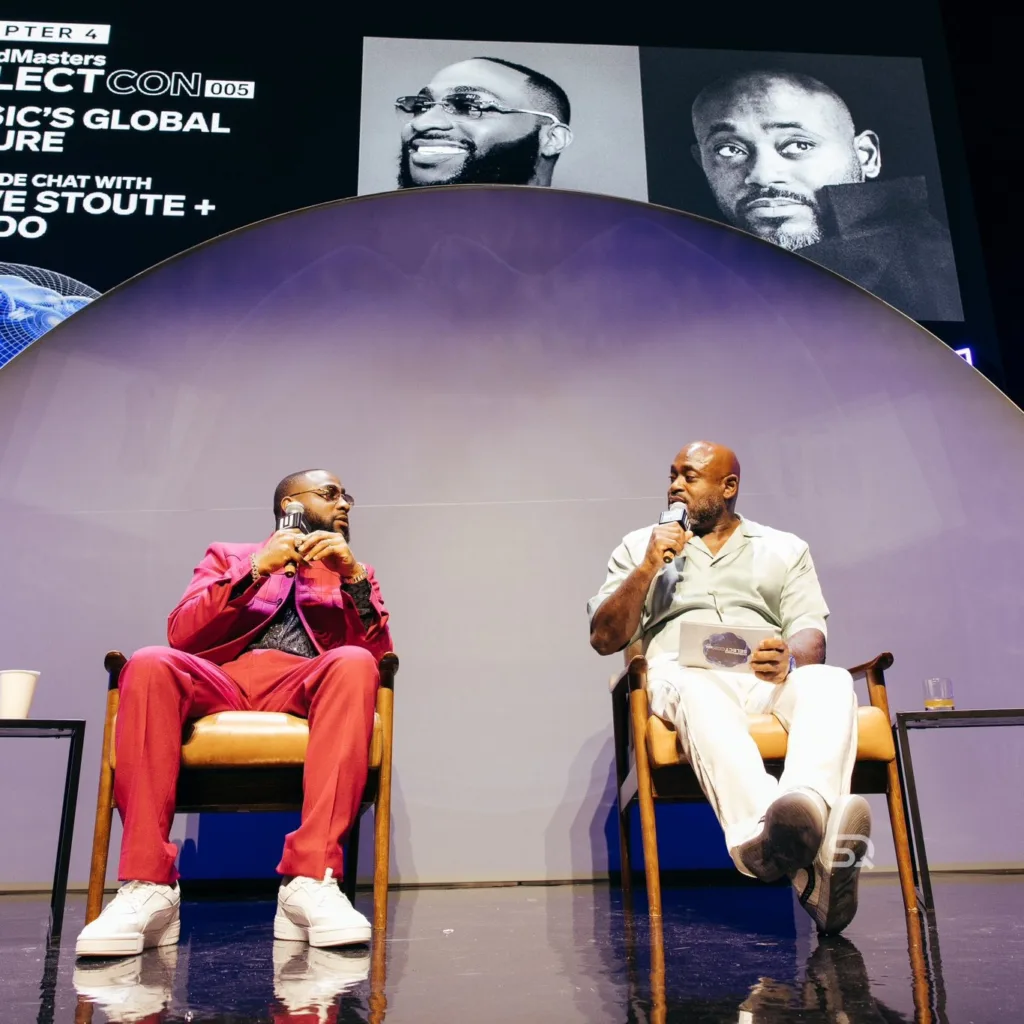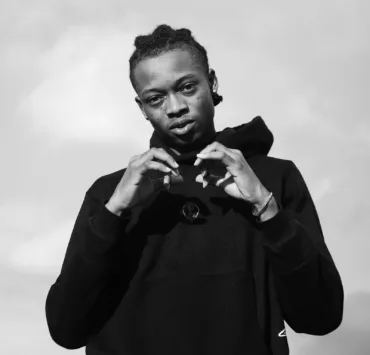
Renowned Nigerian-American artist, Davido, recently made revealing statements about his upcoming Netflix documentary and the birth of his newborn twins.
During his participation as a panelist at UnitedMasters Select Con 005 in New York, Davido publicly acknowledged the birth of his twins for the first time, while discussing the origins of Afrobeats and his early life with Steve Stoute.
Regarding the documentary, he emphasized the importance of showing the struggles that occur behind the scenes in the music industry. He mentioned, “I really wanna show people the struggle behind the scenes because everybody sees the aftermath of things or the success stories without seeing what goes on behind.” He hopes that by sharing these experiences, people will be inspired and learn not to give up, as he faced moments when he thought he might never sing again.
Speaking about the birth of his twins, Davidojoyfully shared, “Three days ago, my wife delivered twins, a beautiful boy and beautiful girl. Came back in double.” He expressed his desire for people to witness this side of his life and how he managed to maintain his faith despite the challenges he faced. He also touched upon the emotional timing of the twins’ birth, occurring in the same month his son passed away the previous year.
He also acknowledged fellow artists D’banj and music executive Don Jazzy as pioneers of modern Afrobeats and spoke about his own skills in brand marketing, emphasizing his passion for brands he genuinely admires. He said, “I used to edit my own YouTube videos. I’m not gonna work with you if I don’t like the brand. I even give ideas to brands.”
Reflecting on his early life, Davido mentioned his late mother, who was a university professor, and his father, a businessman. He disclosed that he discovered his love for music during his last year of high school in Nigeria and pursued music while attending college in Alabama.
Davido also revealed his philanthropic side, stating that he ran a music label for four years without taking any money from the artists he supported. He funded videos, accommodations, and welfare for these artists and found fulfillment in sharing his success with others.


![Arthdal Chronicles (Complete Season 2) | [Download Korean Series] 1 In Arthdal Chronicles Season 2 - In the mythical land of Arth, the inhabitants of the ancient city of Arthdal and its surrounding regions vie for power as they build a new society.](https://criticcircle.com/wp-content/uploads/2023/09/Arthdal-Chronicles-Season-2-90x90.webp)
![One Piece (Complete Season 1) [Download TV Series] 2 In the series, One Piece Season 1 - Monkey D. Luffy and his pirate crew explore a fantastical world of endless oceans and exotic islands in search of the world's ultimate treasure to become the next Pirate King.](https://criticcircle.com/wp-content/uploads/2023/09/One-Piece-Season-1-jpeg.webp)
![Hollywood: American Psycho (2000) [Download Movie] 3 image](https://criticcircle.com/wp-content/uploads/2022/11/image.png)
![Hollywood: Spider-Man No Way Home (2021) [Download Movie] 4 Spider-Man.No_.Way_.Home_](https://criticcircle.com/wp-content/uploads/2022/03/Spider-Man.No_.Way_.Home_-jpeg.webp)
![Pope's Exorcist (2023) [Download Hollywood Movie] 5 In the movie Pope's Exorcist - Father Gabriele Amorth, Chief Exorcist of the Vatican, investigates a young boy’s terrifying possession and ends up uncovering a centuries-old conspiracy the Vatican has desperately tried to keep hidden.](https://criticcircle.com/wp-content/uploads/2023/05/The-pope-1024x1536-1-jpg.webp)



